What Should You Be Doing Now?

What Should You Be Doing Now?
JUNIORS
- Take Advanced Placement (AP) classes. Not only does doing well in these classes boost your GPA, but they look impressive on your résumé.
- If Advanced Placement classes are not an option, then at least complete the basic mathematics classes by Junior year–Algebra I, Geometry, and Algebra Il mastery are a must. Pre-Calculus/Math Analysis is highly recommended. The understanding of these mathematics courses is typically directly proportional to the level of success a student will experience in these areas on the SAT and АСТ.
- Start studying and reviewing material for the SAT and ACT. This may include preparation courses, vocabulary flashcards, or a review of basic math.
- Register for the SAT and/or ACT by second semester of your Junior year. This gives you plenty of time to retake any tests with ample time to review further (note that during COVID-19, you will need to check for available options).
- Start building up your “Brag Sheet,” aka your academic and extracurricular activity résumé. You should strive to increase your number of volunteer hours. If you haven’t been involved in any community service – START NOW!!
- Improve your talents – if you are an athlete or an academic star, try especially hard to receive recognition and awards for these talents.
- Start researching scholarships for which you might qualify. There are dozens of unique opportunities for athletes and students with special talents or skills. Community service, religious organizations and charities often grant terrific scholarships to students that demonstrate leadership in particular fields.
- BE NICE TO YOUR TEACHERS!! We cannot express the importance of building and maintaining an excellent relationship with teachers. Not only are they valuable sources of the critically important letters of recommendations, but they are also invaluable editors of essays and last minute tutors when you need to review a subject for an ACT, SAT, and/or AP test.
- Though we often hear that California students want to leave California for areas like New England and the Midwest, we recommend that you visit these places during all times of the year – Christmas, Spring and Summer breaks and vacations. College campuses usually offer tours throughout the year, but check before you go, and don’t be afraid to tour a campus on your own – wandering without a guide can be an eye-opening experience. NOTE that currently (2021) most campuses are not offering formal tours. The good news is that almost all colleges and universities have “upped their virtual game.” Go on the websites to schedule virtual information sessions and student-led tours.
- Get a summer internship in a field that potentially interests you. This doesn’t have to be your career of choice, but it does show colleges that you are mature enough to be considering entering the workforce.
- Get a job. Not only does working provide some steady income, it demonstrates responsibility, reliability and dedication.
SENIORS
- Continue to enroll in AP courses.
- Retake the SAT or ACT if necessary, by December of your Senior year. If you wait until December, you must pay for the expediting of the scores so that they can count on your applications. For Early Decision or Action applications, testing should be completed by the end of October.
- Start thinking about your essay ideas very early on in your Senior year, even during the summer prior to school year.
- Choose the people who will write your letters of recommendation. Ask them nicely, give them plenty time, and ALWAYS send a thank you letter once the letter has been completed. This is appropriate business etiquette that you can start implementing now.
- Narrow down the list of colleges to which you are going to apply, and aim to finish applications by Winter Break.
- Stay focused. We know the strength of senioritis, but your Senior grades are crucial – don’t let 3 years of hard work go down the drain in one semester.
- Consistently check your portals to ensure that all of the colleges to which you submitted applications have received all the requirements. Remember that the average school receives thousands of applications, and no school is perfect – things get lost and misplaced. Most colleges now communicate with applicants through online portals. Students must be diligent about checking each institution’s portal for application status.
- Get prepared for interviews. We can help! The shyest of students may need extra help, while the extroverted may need to learn to tone down their personalities without losing themselves. Whatever you do – don’t go into an interview unprepared. For those few colleges that still interview prospective students, they are intensifying the quality and difficulty of their interviews, and many students are completely taken off guard by the rigor of these experiences.

